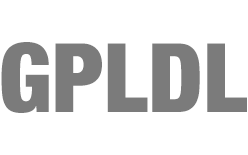What is the Battle Between WordPress’s Matt Mullenweg and WP Engine about?
Discover the conflict between WordPress’s Matt Mullenweg and WP Engine, exploring open-source, trademark, and future impacts on the WordPress ecosystem.
Welcome to GPLDL - we are still beta - please report any bugs via the contact form.
Discover the conflict between WordPress’s Matt Mullenweg and WP Engine, exploring open-source, trademark, and future impacts on the WordPress ecosystem.
Thanks to the creativity and ingenuity of 3rd party WordPress Developers around the globe, WordPress has become a vibrant eco-system beyond the further development of the WordPress Core. A lot of these commercially distributed tools not only enhance the functionality of websites but also ensure that each site can have a unique look and feel. A significant number of these WordPress plugins and themes are licensed under the GNU General Public License (GPL), a cornerstone in the realm of free software. Understanding the GPL and its implications within the WordPress ecosystem is crucial for both developers and users alike.
The WordPress ecosystem offers a vast library of free and commercial plugins and themes to enhance your website's functionality and design. However, with this abundance comes the risk of downloading nulled, modified, or malware-infested plugins and themes. Ensuring the authenticity and security of these additions is crucial for the safety and performance of your website.
The GNU General Public License (GPL) is a widely used free software license, which guarantees end users the freedom to run, study, share, and modify the software. Its popularity is evident in the vast array of influential open source projects that have adopted it. Below, we explore the top 10 open source projects licensed under…
In software development, open-source software stands as a beacon of collaboration and innovation. The GNU General Public License (GPL), a stalwart defender of this ethos, has recently been fortified by groundbreaking US court rulings. These developments not only validate the GPL’s legal framework but also underscore its significance in promoting a more open and collaborative…
Gravity Forms is a popular WordPress plugin that allows users to easily create and manage forms on their website. It is a powerful tool that offers a wide range of features and can be used in a variety of different situations. In this blog post, we will explore some of the most common use cases…
To create a child theme for a WordPress theme, follow these steps: Create a new folder in your WordPress theme directory and name it something like “child-theme.” Inside the child theme folder, create a new file called “style.css.” This will be the main stylesheet for your child theme. In the style.css file, add the following…
Keywords and meta descriptions are an important part of on-page SEO (search engine optimization). They help search engines understand the content of your website and can influence how your website appears in search results. In this blog post, we’ll walk through how to add keywords and meta descriptions in WordPress. Log in to your WordPress…
To manually update WordPress themes and plugins via FTP, follow these steps: Back up your website: Before making any changes to your website, it’s important to create a backup in case something goes wrong. You can use a plugin like UpdraftPlus to create a backup of your website. Deactivate the theme or plugin: Before updating…
The GPL, or GNU General Public License, is a widely used free software license that allows users to freely use, modify, and distribute software that is licensed under the GPL. The GPL is published by the Free Software Foundation (FSF) and is one of the most popular open source licenses. Also WordPress itself is licensed…

